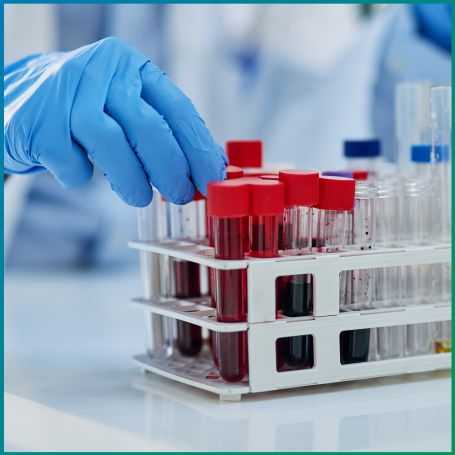
Toxoplasma IgG avidity testing plays a critical role in diagnosing and managing toxoplasmosis, particularly during pregnancy.


Toxoplasmosis is caused by the Toxoplasma gondii parasite, which can be acquired through contact with contaminated food, water, or infected animals. The Toxoplasma IgG avidity test helps determine the timing of infection by measuring the strength of the IgG antibodies produced in response to the parasite. It is especially useful for distinguishing between recent and past infections.
1] Differentiating between recent and past infections: The primary importance of the toxoplasma IgG avidity test pune is its ability to differentiate between a recent infection (within the past 4 to 5 months) and a past infection. If the infection occurred recently, there is a higher risk of transmitting the parasite to the fetus.
2] Preventing unnecessary treatment: A high avidity IgG toxoplasma result indicates that the infection occurred in the distant past, reducing the concern of congenital infection. This allows healthcare providers to avoid unnecessary treatments, which may have risks for both the mother and the fetus.
3] Supporting clinical decisions: When combined with other tests, such as Toxoplasma IgM and Toxoplasma IgG, the avidity test provides valuable information about the stage of infection and helps guide clinical decision-making.
The Toxoplasma IgG avidity test pune is often recommended in cases where there is suspicion of a recent infection, particularly in pregnant women. It is usually performed alongside Toxoplasma IgG and IgM tests to confirm the timing of the infection.
1] Pregnancy:
Pregnant women who test positive for Toxoplasma IgG antibodies are usually recommended to undergo an IgG avidity test for toxoplasma. The goal is to determine whether the infection occurred before or during pregnancy. If the infection occurred before pregnancy, there is minimal risk to the fetus.
2] Immunocompromised individuals:
People with weakened immune systems, such as those undergoing chemotherapy or living with HIV/AIDS, are more vulnerable to toxoplasmosis reactivation. The IgG avidity test helps in assessing whether the infection is recent, which requires immediate medical intervention.
3] Newborn screening:
In some cases, newborns born to mothers with suspected toxoplasmosis may undergo testing to rule out congenital toxoplasmosis.
1] High avidity IgG toxoplasma:
A high avidity result indicates that the infection likely occurred more than 4 to 5 months ago, making it a past infection. This finding is particularly reassuring for pregnant women, as it suggests that the risk of passing the infection to the baby is very low.
2] Low avidity IgG toxoplasma:
A low avidity result suggests a recent infection. In pregnant women, this result could indicate a higher risk of fetal transmission, warranting closer monitoring and possibly treatment to reduce the risk of congenital toxoplasmosis. /
At Diagnopein, we offer comprehensive, accurate, and timely diagnostic services, including the Toxoplasma IgG Avidity test. With our cutting-edge technology, and skilled technicians, you can be assured of reliable results every time. Get your results quickly, especially when time is crucial in detecting severe infections.
Competitive pricing without compromising on quality. Our team of experienced professionals ensures the test is conducted smoothly with minimal discomfort. We provide not just the Toxoplasma IgG Avidity test results but insights into your health condition, helping you and your doctor make informed decisions about treatment. For more information call us at +91 9204 108108.
IgG Avidity Toxoplasma Test is crucial, especially during pregnancy, as it helps differentiate between a recent and a past infection. A recent infection can pose risks to the developing fetus, so timely diagnosis is vital for appropriate treatment.
High avidity indicates that the infection likely occurred more than 3 to 4 months ago, reducing concerns about a recent infection.
No fasting is required before the Toxoplasma IgG avidity test. You can eat and drink as usual before the test.
Low avidity suggests a recent infection, typically within the last 3 months. This may require further monitoring or treatment, especially for pregnant women.